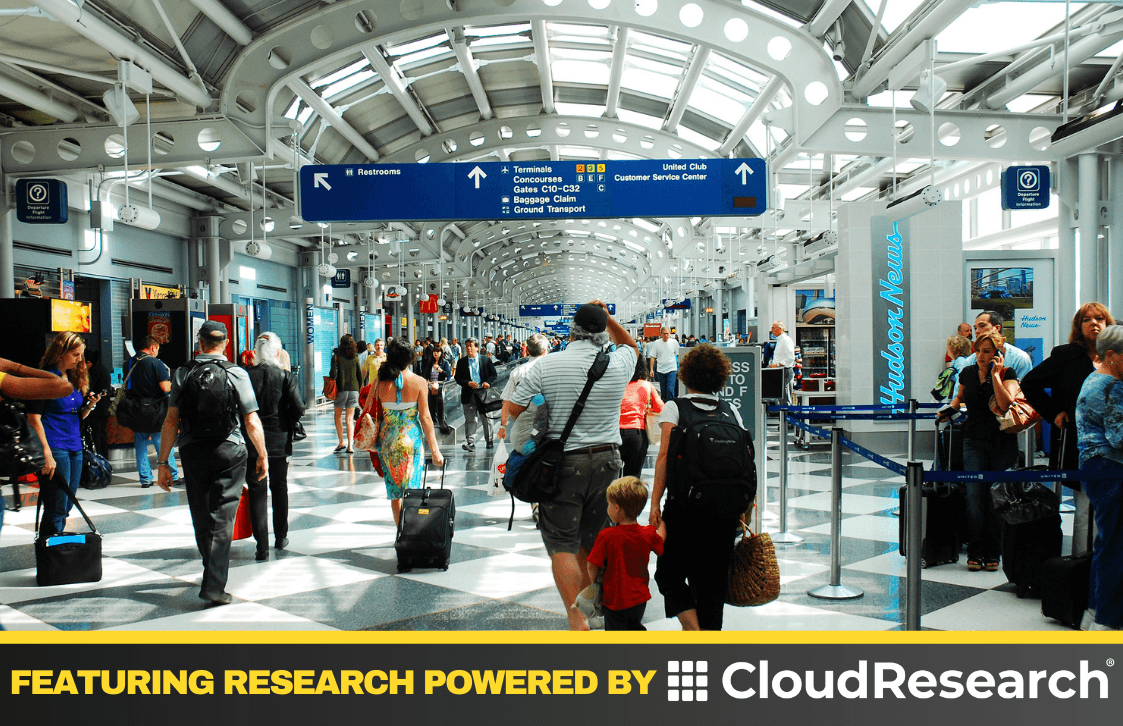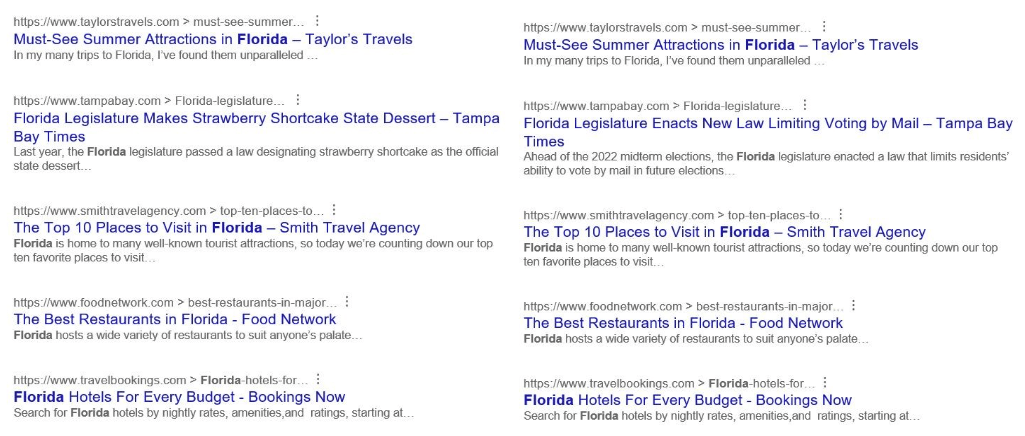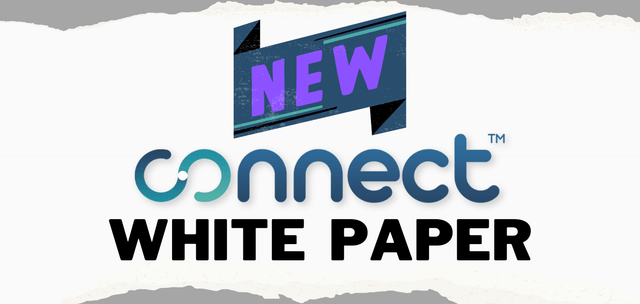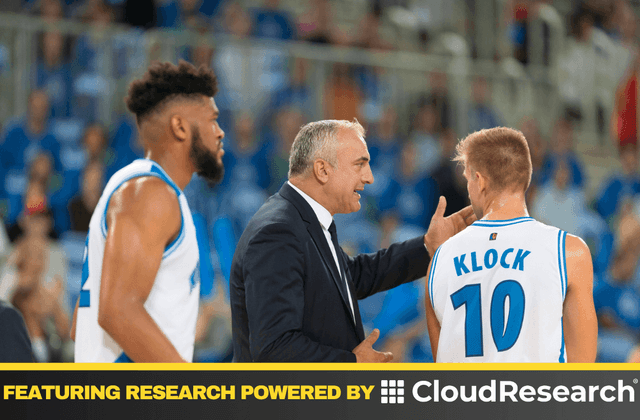
While the peak season for vacations in the United States—summer—is many months away, some Americans are contemplating trips they might make to other parts of the country this year. When considering destinations, Americans are likely to consider factors associated with rest and relaxation, such as each destination’s climate and key activities and attractions.
In recent years, American political elites, businesspeople, and journalists have speculated about another destination characteristic that may enter into this decision-making process: its quality of democracy. Indeed, as several states have restricted key democratic rights, such as Florida, Georgia, and Texas’ decisions to make it more difficult for residents to vote, analysts have warned that organizations and individuals may avoid traveling to those states, thus depriving them of important tourism revenue. However, scant empirical evidence exists to help society understand whether states’ democratic backsliding affects Americans’ leisure travel decisions.
To inform this discussion and enhance our understanding of how Americans react to democratic backsliding, I (with Serena Smith) conducted a series of survey experiments that probed respondents’ leisure travel preferences. Our designs leveraged the random assignment of news about recent democratic backsliding in potential destinations, which enabled us to determine whether backsliding lessens respondents’ interest in vacationing in such locales. Our work, which is forthcoming at the Journal of Experimental Political Science, finds that respondents express lower levels of interest in traveling to destinations that recently experienced backsliding, but the magnitudes of these effects are modest; consequently, backsliding states may suffer through lost tourism revenue, but politicians may be willing to accept those losses if backsliding provides other benefits.
How Support for Democracy Can Influence Leisure Travel Preferences
As democratic backsliding has become more prominent in the United States, political scientists have begun to probe its downstream consequences on the behavior of everyday Americans. For instance, recent work by Michael Nelson and Chris Witko indicates that Americans are less interested in relocating to states that have recently experienced backsliding. However, unlike when permanently relocating to a state, tourists are not directly affected by backsliding policies such as limiting voting access, gerrymandering legislative districts to dilute the influence of certain partisan or racial groups, or curtailing the right to protest. Consequently, we cannot discern from work like Nelson and Witko’s whether backsliding prompts a negative response among Americans that would discourage them from traveling to backsliding states.
However, work on political consumerism suggests Americans are apt to incorporate political information when making apolitical economic decisions, such as deciding where to go on vacation. For instance, Costas Panagopoulos and his colleagues find Americans are more willing to patronize businesses that donate to political candidates who are members of their political party. While an individual’s decision to buy goods or services from a certain company has no political implications for the consumer, the individual often experiences personal satisfaction from aligning their purchasing decisions with their political preferences.
Similarly, we expect Americans’ predisposition towards democratic principles to make them less willing to vacation in locales where democratic backsliding has recently occurred. Additionally, because recent studies indicate that Democrats are particularly sensitive to democratic backsliding, we expect the negative effect of backsliding on travel preferences to be largest among Democrats.
Isolating the Effect of Democratic Backsliding in the US on Vacation Preferences
To determine whether backsliding makes Americans less willing to travel to affected destinations, we conducted two experiments simulating the process by which respondents make vacation choices. Through random assignment, we were able to compare respondents’ level of interest in vacationing in a destination if it recently experienced backsliding to the level of interest in that same destination if it did not experience backsliding. Consequently, our findings represent the causal effect of backsliding on travel preferences.
Our first experiment utilized a conjoint design in which we provided respondents with sets of hypothetical destinations to which they might travel. For each destination, we provided several randomly assigned pieces of information commonly used when deciding where to vacation such as its average temperature and most popular activities and attractions.
Additionally, we provided respondents with a piece of “recent news” about the state in which each destination is located. Importantly, two of the potential values of “recent news” informed respondents that the state legislature had recently restricted residents’ ability to vote early or protest at the state capital—both policies consistent with democratic backsliding. Because the values of each piece of information about the destinations were randomly assigned, we could use respondents’ destination choices to estimate the causal effect of backsliding independent of other characteristics. In doing so, we found respondents were 1 to 3 percentage points less likely to choose destinations recently affected by backsliding. Subsequent analyses accounting for respondents’ partisanship revealed this effect was concentrated among Democrats.
Unlike our first experiment, which focused on hypothetical destinations, our second experiment focused on a popular destination that has recently experienced backsliding—Florida. Drawing on a real-world case enhances the credibility of our design because we can assess whether information about backsliding influences respondents’ preferences concerning a familiar destination about which they likely hold pre-existing attitudes. We fielded this experiment in February 2023 using approximately 1,170 respondents from CloudResearch’s Connect platform, which provides survey panels whose demographic characteristics mirror those of the national US population. Our Connect respondents were highly engaged in participating in our survey, as 86.2% of respondents successfully completed both of our attention check questions and many provided us with insightful written feedback through the Participant Ratings feature.
The high quality of respondent engagement makes us confident that they complied with our survey instructions and that the estimates we recovered reflect effects of our democratic backsliding treatment.
We told respondents to imagine they were considering vacationing in Florida and had conducted an Internet search to find more information. Then, we provided five results that their hypothetical search generated. Four of the results were identical for all respondents and provided generic information about vacationing in Florida, and a fifth concerned a recent policy adopted by the state legislature. While respondents in the control group received a result about the adoption of strawberry shortcake as the state dessert, those in the treatment group instead received a result detailing new restrictions on mail-in voting—a policy consistent with democratic backsliding.

We told respondents to imagine they had searched for information about vacationing in Florida and saw a set of five search engine results. For those in the control condition (left image), the second result pertained to a new story about the Florida legislature adopting strawberry shortcake as the state dessert. For those in the treatment condition (right image), the second result instead pertained to a story about the Florida legislature limiting vote-by-mail.
We assessed the effect of our treatment on respondents’ travel preferences by comparing the levels of interest they reported in vacationing in Florida before and after exposure to the search results. While respondents in the treatment group became less interested in vacationing in Florida relative to those in the control group, this decrease is small (-0.02 on a five-point scale) and not statistically reliable. However, the magnitude of this difference is slightly larger (-0.08) and statistically reliable among Democrats. Thus, even when removing the abstraction in our first experimental setting and incorporating a real-world context, we find evidence that the subgroup most sensitive to backsliding expresses aversion to vacationing in a locale that recently restricted its residents’ rights.
Lessons for small-d democrats
Our findings suggest American states face economic penalties when they erode democracy, as potential travelers express lower levels of interest in vacationing in backsliding locales even though the policy changes will not affect them. Advocates of small-d democracy may take heart that these potential costs may deter political elites from backsliding in their own states; indeed, using our results along with recent tourism data from Florida, we estimate that Florida’s decision to adopt backsliding policies could cost it between $981 million and $2.9 billion in annual tourism-related economic activity.
However, while we find statistically reliable effects of backsliding on travel preferences, the magnitudes of those effects are small. Consequently, economic penalties associated with backsliding may not be substantial enough to dissuade would-be backsliders. For instance, the amount of economic activity Florida stands to lose from backsliding constitutes less than 0.2% of the state’s gross domestic product. If elected officials foresee other benefits to backsliding, such as increased approval among their constituents or larger campaign contributions, they may be willing to accept relatively small dips in state-level economic activity.
References
Cantu, F. (2021, May 7). Tourism business leaders raise last-minute concerns about new TX voting laws. CBS Austin. Retrieved from https://cbsaustin.com/news/local/tourism-business-leaders-raise-last-minute-concerns-about-new-tx-voting-laws
Cassels, L. (2021, April 5). After MLB pulls game from Georgia, a top House Dem says ‘very bad’ voting bills could hurt FL tourism, too. Florida Phoenix. Retrieved from https://floridaphoenix.com/2021/04/05/after-mlb-pulls-game-from-georgia-a-top-house-dem-says-very-bad-voting-bills-could-hurt-fl-tourism-too/
Hainmueller, J., Hopkins, D. J., & Yamamoto, T. (2014). Causal Inference in Conjoint Analysis: Understanding Multidimensional Choices via Stated Preference Experiments. Political Analysis, 22(1), 1–30. doi:10.1093/pan/mpt024
Miller, D. R., & Smith, S. D. (n.d.). (Small D-Democratic) Vacation, All I Ever Wanted?: The Effect of Democratic Backsliding on Leisure Travel in the American States. Retrieved from https://www.davidryanmiller.com/files/PoliticalTravel_JEPS_v3.pdf
Nelson, M. J., & Witko, C. (2022). The Economic Costs of Democratic Backsliding? Backsliding and State Location Preferences of US Job Seekers. The Journal of Politics, 84(2), 1233-1238.
Panagopoulos, C., Green, D. P., Krasno, J., Schwam-Baird, M., & Endres, K. (2020). Partisan consumerism: Experimental tests of consumer reactions to corporate political activity. The Journal of Politics, 82(3), 996-1007.
Perryman Group. (2021, April). The potential economic impact of legislation restricting voter access on business activity in Texas. Retrieved from https://www.perrymangroup.com/media/uploads/brief/perryman-the-potential-economic-impact-of-legislation-restricting-voter-access-on-business-activity-in-texas-full-04-09-21.pdf
Reston, M. (2021, April 4). As restrictive voting bills multiply, GOP signals it won’t bow to corporate pressure. CNN. Retrieved from https://www.cnn.com/2021/04/04/politics/georgia-voting-law-mlb-leaving/index.html
Simonovits, G., McCoy, J., & Littvay, L. (2022). Democratic hypocrisy and out-group threat: explaining citizen support for democratic erosion. The Journal of Politics, 84(3), 1806-1811.











